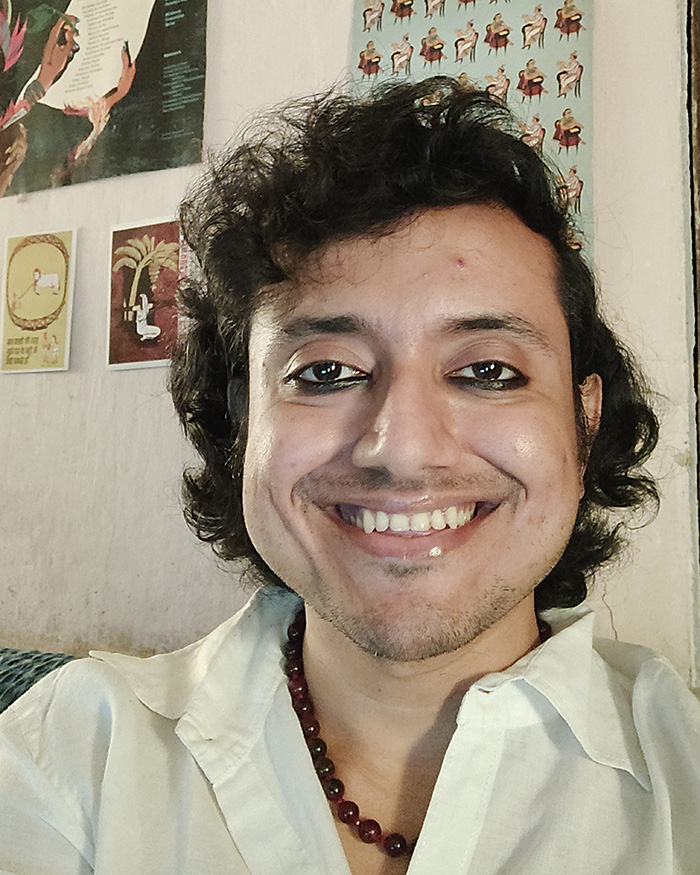PhD candidate Sayan Bhattacharya received the President’s Student Leadership and Service Award for their work to raise funds for the many gender non-normative people in India who have been unable to find employment amid the COVID-19 pandemic.
“There are very few employment opportunities for trans people,” Bhattacharya said. “For instance in India hijras are traditionally employed as performers. They dance at weddings, they perform at various ceremonies.”
But due to the pandemic, those weddings and ceremonies are not happening, or if they are, size is strictly limited. So hijras, who can be transfeminine individuals, gender non-conforming people assigned male sex at birth, or even women who live together in closely knit communities, are not able to make any money.
Another way many transgender and hijra people often make money is through sex work. But that is being affected by the pandemic as well.
“Physical touch and proximity is all very connected to the question of livelihood when we think of trans and hijra,” Bhattacharya said. “The question of gender non-normativity already makes one marginalized, and sex work further marginalizes them. Sex work is criminalized in India just like it is globally, but it is a major source of livelihood for transfeminine persons and hijras.”
Bhattacharya and other academics and activists have been raising funds to buy food for these at-risk communities.
“Last year we had a community kitchen that went on for three months,” Bhattacharya said. “We fed hundreds of people, all migrant workers who had completely lost their employment.”
The money also helps pay for housing, as many in the community have been thrown out of their family homes due to transphobia, and medicine for the elderly and HIV positive.
“The work has become even more challenging because there’s a lot of fatigue,” Bhattacharya said. India is facing a large second wave of COVID-19 infections, and people are tired of being asked to contribute money.
Bhattacharya and the other volunteers are also trying to encourage people to get vaccinated once vaccines are more available in the country.
Many of the people Bhattacharya has worked with for their PhD research have told them that the vaccines are a conspiracy to murder transgender individuals.
“These are people who have seen the worst of the HIV pandemic and have seen how the state has completely denied them basic rights,” Bhattacharya said. “They’ve seen how the government would deny treatment and facilities and people would get incarcerated. Now they’re seeing the government saying get vaccinated, so they’re feeling suspicious.”
Examining the role of memory
The memory of the previous HIV pandemic is shaping the community’s response to the COVID pandemic, Bhattacharya explained.
As a PhD candidate in the department of Gender, Women, and Sexuality Studies, Bhattacharya is investigating the complex role of memory in the way transgender and queer rights are articulated in India.
Bhattacharya is also working to ensure that more voices from the Global South are heard in research and academia.
“There is this hierarchy where theory is what is produced in the American or European university and then that theory is applied to the context of a geographic location outside of Europe or America,” they said.
Bhattacharya cited the examples of the HIV and COVID pandemics. What does the HIV pandemic in India have to teach scholars of HIV in the U.S.? Or what can academics in the U.S. learn from India’s fight against COVID?
In Bhattacharya’s research area specifically, much of the global conversations on queer and transgender movements revolve around the U.S. Queer theory produced in the U.S. is often applied to all contexts, despite cultural differences.
“My scholarship questions this hierarchy, where I’m saying that my location is also capable of producing the theory that could be applied to a case study in America for instance.”
